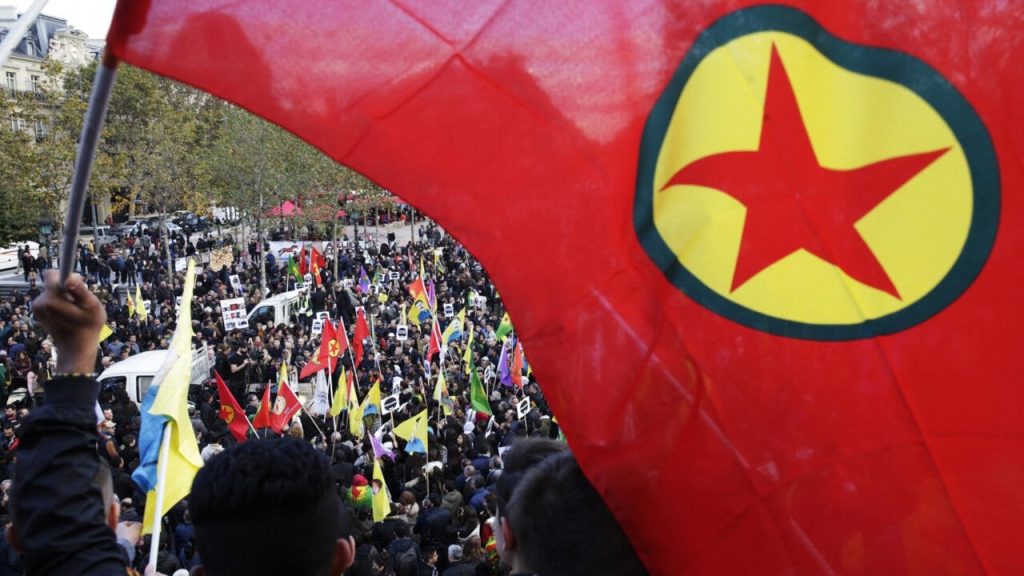Strategic Transformation? The PKK’s Self-Dissolution within the Framework of Democratic Modernity

Written by Yavor Tarinski
To many the news of PKK dissolving itself came as a thunder bolt from the blue sky. Such a surprise mostly comes from an absence of knowledge on the writings of Öcalan and the project of Democratic Modernity that has been adopted by the Kurdish freedom movement couple of decades ago.
As some may know, Öcalan and the Kurdish movement underwent a major shift away from Marxism-Leninism, and towards a Bookchin-inspired direction of Democratic Confederalism (the most clear manifestation of which took shape in the form of autonomous administration in the region of North-East Syria, more widely known as Rojava). This new paradigm abandoned old concepts such as the vanguard party and the nation-state, embracing instead broad social self-emancipation through popular assemblies, communes, and councils beyond statecraft and Capital.
In this worldview there was increasingly less space for the PKK, while major role was given to the Kurdistan Communities Union (KCK) – an umbrella organization with more decentralized and horizontal character that includes many communes, parties, committees, citizen initiatives, etc in Turkey, Syria, Iraq, and Iran.
Already in his 2012 “Prison Writings III” (compiling his writings from his isolation cell in the Imrali prison from the period 2009-2011) Öcalan hints at the future dissolution of the PKK as the Third step in his “Democratic Solution Plan”, writing that:
As the activities of the KCK gain legal status, the PKK will have no further need to engage in any activities within Turkey. It will base its further existence on legal and democratic political, social, economic, and cultural activities.[1]
In the same book he suggests that rather than abandoning any form of resistance, the Kurdish movement should embrace a more horizontal and less militarized type of self-defense that will stem from the KCK:
The KCK will be in a position to defend society and the environment against the devastating effects of capitalist modernity, with its sole aim at achieving maximum profits. It will do so through economic and ecological communes, as well as other units aimed not at achieving profits but at responding to the fundamental needs of the society and protecting the environment.[2]
Furthermore, Öcalan stresses that “the KCK will have to have its own defense forces[,which] will be indispensable for democratic life.”[3]
Öcalan’s call from February 2025 on the PKK to self-disband was met with support by Kongra-Gel officials, the legislative assembly of the KCK, claiming that this step “marks the beginning of a broader democracy movement—one that includes women, workers, and environmental activists” [4], thus being more aligned with the framework of Democratic Modernity.
Since the 2009, the KCK has initiated numerous municipalist initiatives inside Turkey, along other cultural and social structures, that have managed to win local councils and get its candidates elected to mayoral positions, indicating their commitment to a political and municipal-focused strategy. [5] This does not mean that this approach wasn’t often met with repressions by Turkish authorities.
In conclusion, we can assert that rather than a surprise, the announcement of the disbandment of the PKK comes as something that more careful readers and people who follow closely the Kurdish question have been expecting for years (as the Kurdish movement itself was preparing its infrastructure throughout Kurdistan for this transition) and there is no space for desparation or disappointment. The big question that follows is wether Turkey’s authoritarian government will allow such democratic approach, or will it force the Kurdish movement back to armed insurgency. We shouldn’t forget that in the past the PKK attempted couple of times to withdraw its forces from Turkey, but each time the process was disrupted by the Turkish state. [6]
[1] Abdullah Öcalan. Prison Writings III: The Road Map to Negotiations (Cologne: International Initiative Edition, 2012). p104.
[2] Prison Writings III, p96.
[3] Prison Writings III, p97
[4] https://bianet.org/haber/kongra-gel-leader-backs-ocalan-s-statement-305001
[5] Seevan Saeed. The Kurdish National Movement in Turkey: From the PKK to the KCK (2014), p255. [available online at https://ore.exeter.ac.uk/repository/bitstream/handle/10871/16936/SaeedS.pdf]
[6] https://en.m.wikipedia.org/wiki/History_of_the_Kurdistan_Workers%27_Party
